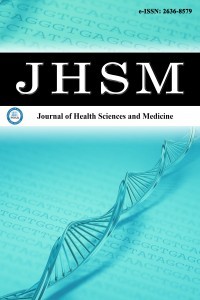1.
Coiera E, Yin K, Sharan RV, Akbar S, et al. Family informatics. J Am Med Inform Assoc. 2022;29(7):1310-1315. doi:10.1093/jamia/ocac049
2.
Secunda K, Wirpsa MJ, Neely KJ, et al. Use and meaning of “goals of care” in the healthcare literature: a systematic review and qualitative discourse analysis. J Gen Intern Med. 2020;35(5):1559-156. doi:10.1007/s1106-019-05446-0
3.
Zhang Y. Family functioning in the context of an adult family member with illness: A concept analysis. J Clin Nurs. 2018;27(15-16):3205-3224. doi:10.1111/jocn.14500
4.
Skene C, Gerrish K, Price F, Pilling E, Bayliss P, Gillespie S. Developing family-centred care in a neonatal intensive care unit: an action research study.Intensive Crit Care Nurs.2019;50:54-62. doi:10.1016/j.iccn.2018.05.006
5.
Ris I, Volken T, Schnepp W, Mahrer-Imhof R. Exploring factors associated with family caregivers’ preparedness to care for an older family member together with home care nurses: an analysis in a Swiss urban area. J Prim Care Community Health. 2022;13:21501319221103961. doi:10.1177/21501319221103961
6.
Ania-González N, Martín-Martín J, Amezqueta-Goñi P, Vázquez-Calatayud M. The needs of families who care for individuals with kidney failure on comprehensive conservative care: a qualitative systematic review. J Ren Care. 2022;48(4):230-242. doi:10.1111/jorc.12415
7.
Soikkeli-Jalonen A, Mishina K, Virtanen H, Charalambous A, Haavisto E. Healthcare professionals’ perceptions of psychosocial support for family members in palliative care inpatient units-A qualitative descriptive study. Nurs Open. 2023;10(5):3018-3027. doi:10.1002/nop2. 1548
8.
Reblin M, Ketcher D, Vadaparampil ST. Care for the cancer caregiver: a qualitative study of facilitators and barriers to caregiver integration and support. J Cancer Educ. 2022;37(6):1634-1640. doi:10.1007/s13187-021-02001-6
9.
Lindahl J, Elmqvist C, Thulesius H, Edvardsson D. Psychometric evaluation of the Swedish language Person-centred Climate Questionnaire-family version. Scand J Caring Sci. 2015;29(4):859-864. doi:10.1111/scs.12198
10.
Cranley L, Sivakumaran G, Helfenbaum S, et al. Development of communication tool for resident- and family-led care discussions in long-term care through patient and family engagement. Int J Older People Nurs. 2022;17(2): e12429. doi:10.1111/opn.12429
11.
Edvardsson D, Sandman PO, Rasmussen B. Swedish language Person-Centred Care Questionnaire-patient version: construction and psychometric evaluation. J Adv Nurs. 2008;63:302-309. doi:10.1111/j.1365-2648.2008. 04709.x
12.
Edvardsson D, Sandman PO, Rassmussen B. Construction and psychometric evaluation of the Swedish language Person-centred Climate Questionnaire-staff version. J Nurs Manage. 2009;17(7):790-795. doi:10.1111/j.1365-2834.2009.01005.x
13.
Nunnally JC. An overview of psychological measurement. Clinical diagnosis of mental disorders: a handbook. 1978:97-146.
14.
Çapık C. Geçerlik ve güvenirlik çalışmalarında doğrulayıcı faktör analizini kullanımı. Anad Hemşir Sağl Bil Derg. 2014;17(3):196-205.
</ol>
</div>
<p>

